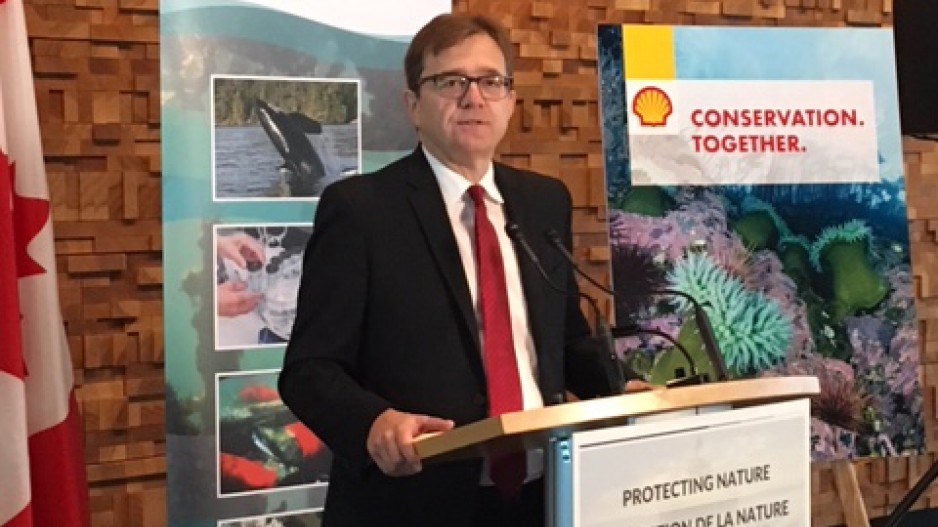B.C. whale watching companies have agreed to stop offering tours for the Southern Resident Killer Whale (SRKW), and the marine sector has agreed to enhanced measures, like slowing down vessel traffic when orcas are in local waters.
The new measures were announced Friday, May 10, by Fisheries and Oceans Minister Jonathan Wilkinson and Terry Beech, parliamentary secretary to the minister of Transport.
The announcement follows previous measures announced in September and December 2018, and recent restrictions on the sport fishing sector for chinook salmon, which make up the SRKW’s main diet.
The new measures focus largely on enhanced conservation areas in orca foraging zones, and enhanced restrictions on marine vessels.
“For 2019, we will be implementing area-based closures for salmon fisheries in a few specific areas of importance to Southern Resident Killer Whale foraging,” Wilkinson said. “These will, however, remain open for fisheries of other species.”
He added Fisheries and Oceans Canada will be trying a new approach called “bubble closures” in which all fishing and boating activities will be required to move one kilometre away from areas where whales are feeding between May and the end of October.
Also, three sanctuaries off the southwest coast of Pender Island and southeast end of Saturna Island and Swiftsure Bay will be created that limit fishing and boat traffic from June 1 to October 31.
“The measures being announced today have been designed to ensure that the South Resident Killer Whales have areas of low disturbance, and lower competition for chinook salmon, while concurrently providing ongoing opportunities for recreational fisheries,” Wilkinson said.
While their northern cousins number more than 300, the SRKW population is down to 75. Ottawa has earmarked $167 million toward protection and recovery measures.
As for marine traffic, Wilkinson said whale watching companies have agreed to stop offering whale watching tours for the SRKW. They will still be able to offer tours for other whale species and for transient killer whales.
The Vancouver Fraser Port Authority, Chamber of Shipping, cruise ship operators and other marine sector associations have signed onto a five-year agreement supporting orca recovery efforts, including an agreement to slow down vessels in Haro Strait and Boundary Pass for the summer period when the orcas are in the area on their annual migration north.
“We will ask car carriers, cruise ship and container ships to lower their speeds to 14.5 knots, and we’ll ask tankers, bulkers, Washington State and BC Ferries and government vessels to travel at 11.5 knots,” Beech said.
He said Ottawa is also working with the U.S. Coast Guard on a new trial this summer aimed at moving inshore traffic in the Juan de Fuca further away from shore.
A coalition of six conservation groups praised the new protection measures as "the boldest yet."
“The commercial vessel slowdown will help reduce overall noise exposure to southern residents and make it more viable for them to hunt salmon this year," Hussein Alidina, ocean conservation specialist for the World Wildlife Fund Canada, said in a press release. "We welcome this multi-year commitment by industry and government in the conservation agreement to undertake slowdowns. Significant and sustained reductions in noise levels from shipping will be needed to aid in the recovery of these whales.”
In September 2018, Wilkinson announced a new marine protected area in and around the Scott Islands off the northwest coast of Vancouver Island, and $3.2 million in funding for research and monitoring. That measure was primarily for protecting bird, but also would provide some protection for orcas.
In December, 2018, he announced new conservation areas around points known as Swiftsure and Le Perouse on Southern Vancouver Island, and western Dixon Entrance. DFO also recently announced major new restrictions on the sport fishing sector for Chinook for the 2019 season.




